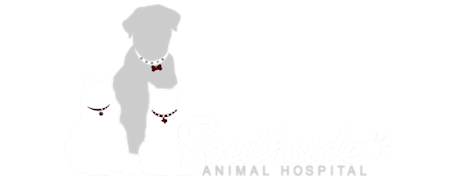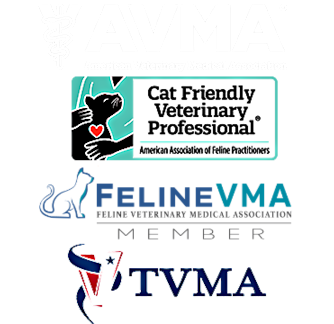Trick-or-Woof
General

As Halloween, one of the most candy-centered of the fall holidays, approaches, we wanted to give you some tips to help keep your pets safe.
Tip #1: Keep dogs and cats that may like to “escape” away from doors that will be opening and closing frequently.
Confine your pets to areas of your house that will eliminate the chance that they may get out of your house. Frequent knocking or doorbell ringing may make them nervous, and they may try to do things that they don’t normally do. Also, some children may not have pets and may be frightened by dogs or cats that come to greet them at the door.
Tip #2: Try to keep cats indoors, especially black cats.
Unfortunately, there are mean people in the world that still have superstitions associated with cats and Halloween, especially black cats. Try to keep cats out of harm’s way by keeping them indoors on Halloween night.
Tip #3: Be careful of costumes and pets.
Not all pets like wearing clothing. Make sure there aren’t strings, tight elastic bands or other things that they can chew off or that may tighten around the head, neck or legs. Avoid masks or anything that will decrease vision or airflow.
Tip #4: Keep all candy, especially Chocolate and artificial sweeteners, out of your pets’ reach!
If you didn’t already know – chocolate can be toxic to both dogs and cats! If enough is ingested, animals can even die from eating chocolate.
If you know your pet has eaten anything containing chocolate or cocoa powder, call Southside Animal Hospital immediately for further instructions.
Depending on the amount ingested, clinical signs range from gastrointestinal upset (vomiting and diarrhea) to elevated and/or irregular heart rates to hyperactivity, tremors and seizures. Clinical signs can last from 12-36 hours.
Treatment varies based on the type of signs the pet is experiencing, but it could include hospitalization with intravenous (IV) fluids and medication to stop seizures.
The prognosis for recovery is usually good if signs are caught and treated early; if seizures or heart signs develop the prognosis is more guarded.
The artificial sweetener Xylitol (found in many chewing gums) can cause gastrointestinal upset and severe liver damage. If you know or think your pet has ingested any artificial sweetener, please call Southside immediately.
Even candy wrappers can cause irritation and potential intestinal blockage, so keep these out of your pet’s reach as well.
Please call Southside Animal Hospital at (325) 653-0113 if you have any questions about pet safety during Halloween!

